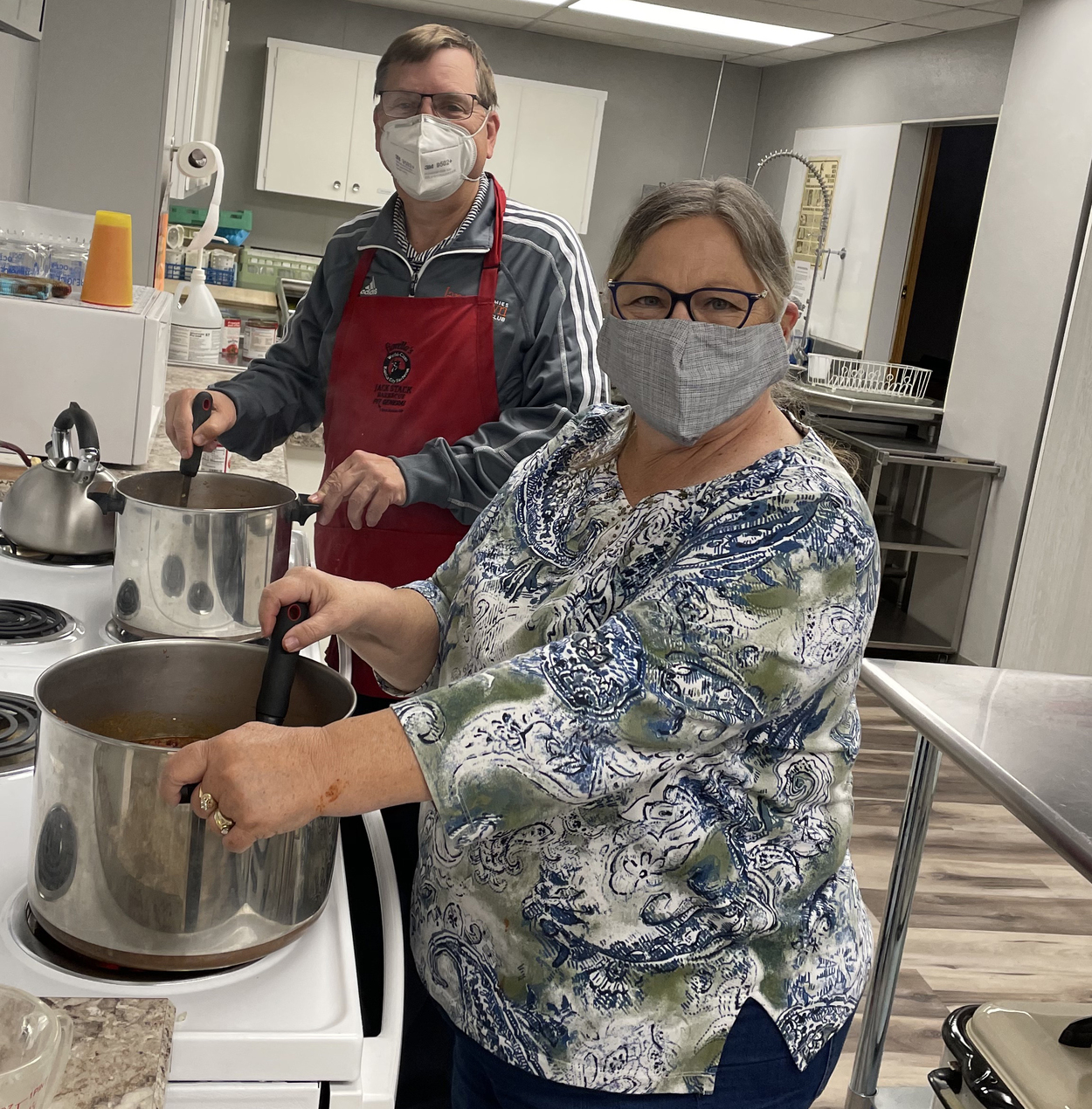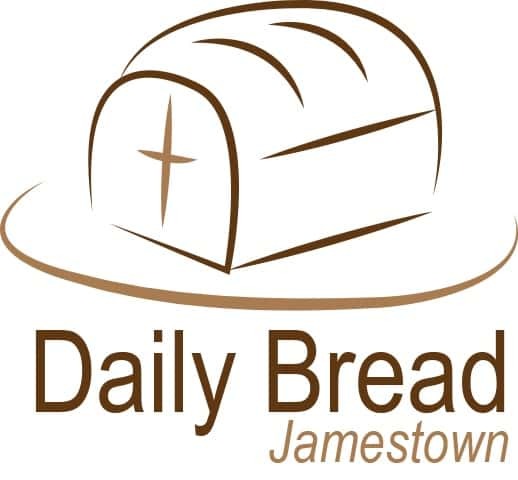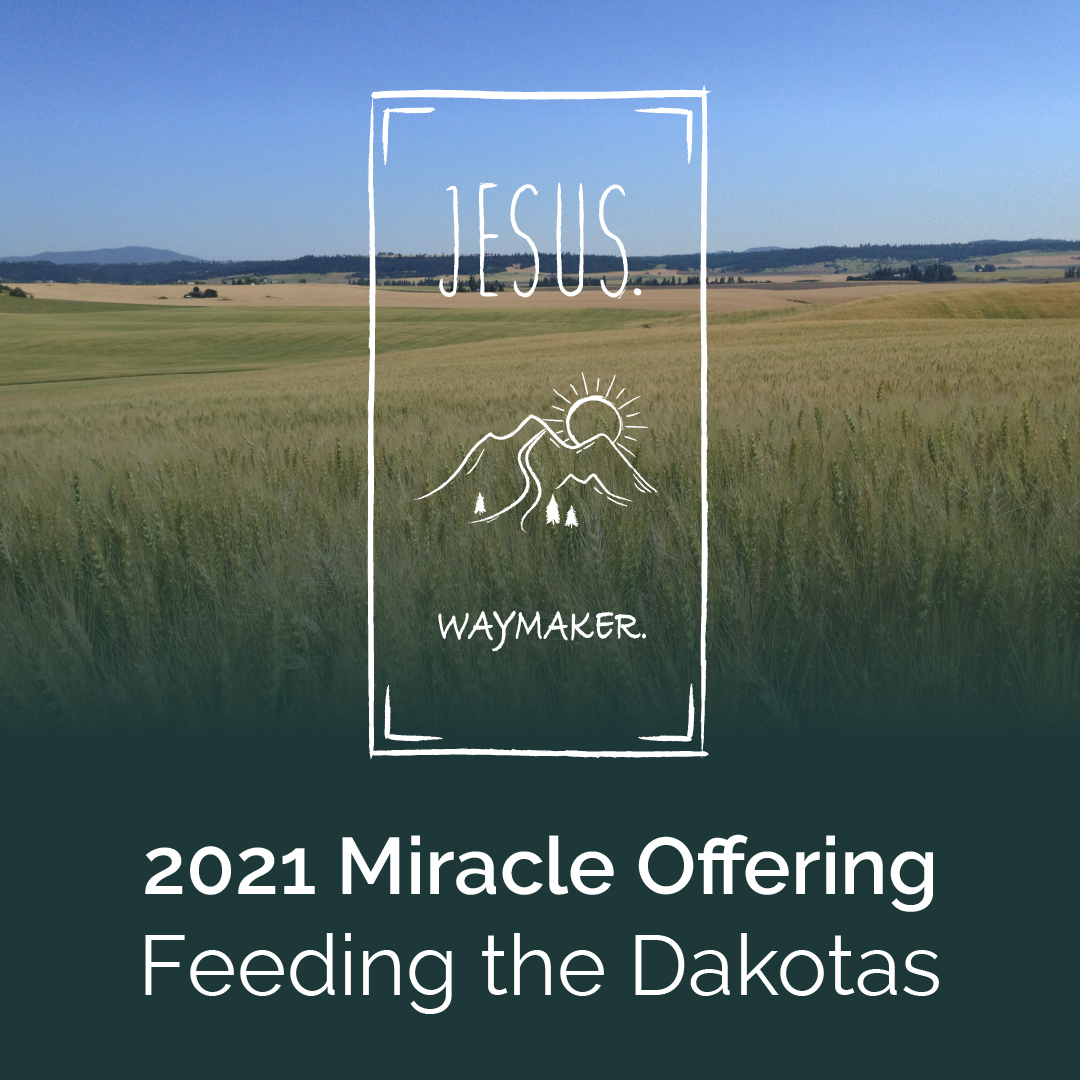
Jamestown First feeds their neighbor: 2021 Miracle Offering— Feeding the Dakotas

Ken McDougall and Rita Greer prepare meals for the Daily Bread freezer at Jamestown First UMC. Photos courtesy of Rosemary McDougall.
“Give us this day our daily bread” are words from the Lord’s Prayer. First United Methodist Church in Jamestown, North Dakota, is living out the prayer by feeding their neighbors in Jamestown through the Daily Bread Program.
“There is always a need. We feel good about trying to help the hungry in our community,” said Rosemary McDougall, a member at First UMC in Jamestown and one of the coordinators of the Daily Bread Program.
The program started in 2011 in Jamestown, North Dakota. One of the senior living communities saw a lot of good food being wasted each day. The living community got a freezer and put the food into meal-size containers in the freezer. Community members were invited to take a meal as needed. It evolved into a community-wide, non-profit organization. The goal was to provide food for anybody in need.
Today there are several freezers around the community, including the First United Methodist Church in Jamestown. The freezers are filled with meals made in safety-certified kitchens.
Ken McDougall, Rosemary’s husband, listened to a speaker at a Kiwanis Club meeting about the program. The speaker requested organizations to get involved by donating food, funds or becoming a site for a freezer. He brought the idea back to the Missions and Outreach Committee at First UMC. The congregation now hosts and supports a freezer. The church is located downtown, across from the Middle School, a convenient location for people to stop and pick up a meal.

“The food is free. There are no questions asked,” said Rosemary McDougall. “People can just go to the freezer and take what they need.”
First UMC’s Mission and Outreach Committee began stocking the freezer with the help of a local caterer. People could come to the church and take a meal.
“Our goal was to be more hands-on. To get involved not only in having a freezer filled with food but to make the food,” said McDougall. “So last summer, we worked with the Central Valley Health District and got the church kitchen certified.”
Since then, there has been a team of volunteers cooking in the church’s kitchen to fill the freezer. A group gets together 2-3 times each month to prepare meals like hamburger hotdish, tater tot hotdish, meatballs, gravy, mash potatoes, lasagna, and chili.
“The office manager, Tami Severance, at the church is close to the door where the freezer is. She keeps her eye on how well stock the freezer is and lets us know,” said Rosemary.
Fresh produce is also available in a refrigerator right next to the freezer. A local produce distributor provides fresh fruits and vegetables each week to supplement the frozen meals.
“The Daily Bread provided a new refrigerator. The local produce company provides fresh produce once a week. People can come to take things like lettuce salads, fresh green beans, whatever is in the refrigerator,” explains McDougall. “It supplements the freezer food.”
McDougall estimates that the freezer helps 15-20 families each week or about 80 meals each month. The COVID pandemic has narrowed the number of volunteers involved from the congregation. She estimates that there is a core group of ten people who are involved and hopes the number will grow. Rosemary states, “Our goal is to set up a regular time so that people know when we are cooking. We want to make this a meaningful small-group outreach experience for members of the congregation .”
The national good Samaritan Law protects the food donors through The Bill Emerson Good Samaritan Food Donation Act signed in 1996. If someone claims an issue with the food donated, donors are protected.

“Part of the problem was getting the food in the freezers. We can help with filling up the freezer. We have some funds in an endowment that helped us get started. The Daily Bread Program provided the freezer and refrigerator. Our church provides funds to make the food. We generally spend about $2-3 for each meal," said McDougall.
Hungry people are facing many circumstances. “It is not our place judgment and ask questions. We simply are there to help out,” said Rosemary. “It is really good to know that we are helping out through a community-wide program that works.”
McDougall is now on the board for the Daily Bread Program.
The Daily Bread Program is an example of how churches feed the bodies and souls of people in local communities across the Dakotas Conference. If you have an idea for starting or expanding a local outreach program to feed the hungry, support the 2021 Miracle Offering: Feeding the Dakotas. One-third of the gifts received will be distributed back to local hungry programs.